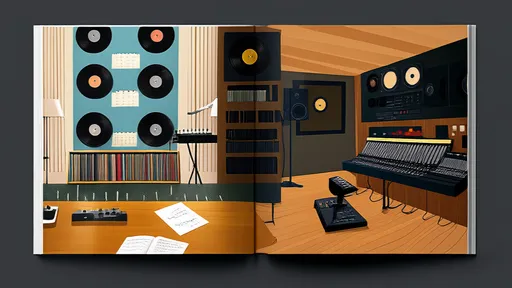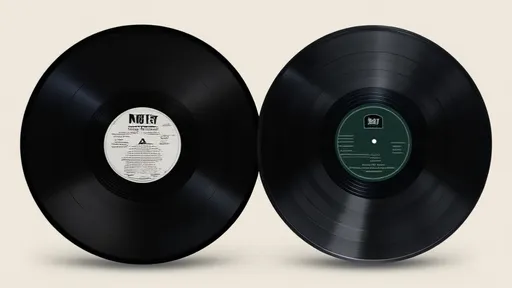There’s a certain magic to a band’s debut album, an intangible quality that often makes it feel like their definitive statement, their purest expression. It’s a phenomenon that countless music fans have debated in record stores, at concerts, and in online forums for decades. Why does that first collection of songs so frequently become the one we hold dearest, the one against which all subsequent work is measured and, often, found wanting? The answer isn’t found in a single, simple reason but in a complex alchemy of artistry, circumstance, and listener psychology.
The journey to a first album is a long and arduous one. For most bands, these songs aren’t written in a few frantic weeks of studio-time luxury. They are the product of years. They are the anthems honed in dusty garages, the ballads tested in half-empty dive bars on a Tuesday night, and the riffs perfected over countless rehearsals. This material has a unique gestation period. It is written not for a record label, not for a critic, and not even for a known audience. It is written out of a raw, urgent need to create. There are no expectations, no deadlines from a multi-album contract, and no pressure to replicate a prior success. The band is creating in a vacuum, and that freedom is palpable on the recording. Every note is infused with the sheer, undiluted passion of wanting to be heard for the very first time.
This leads directly to what might be the most crucial ingredient: authenticity. A debut album is often the closest a band ever gets to their true, unvarnished sonic identity. It is created before the world has had a chance to label them, before marketing departments can package them, and before the inevitable comparisons to other artists begin to subtly influence their direction. The sound on that first record is theirs and theirs alone, born from their collective influences, their technical limitations (which can often be a creative blessing), and their shared ambition. There is a roughness around the edges, a willingness to experiment and take risks that can get polished away on later, more considered releases. It feels less like a product and more like a direct transmission from the artists’ souls.
Furthermore, we cannot separate the art from the moment we discover it. For the listener, a debut album often arrives as a revelation. It’s the soundtrack to a specific, formative time in our lives. We hear it when our musical tastes are still being sculpted, when a new sound can feel like a personal discovery that defines us. That album becomes inextricably linked to our own narrative—the friends we had, the parties we went to, the heartbreaks we endured. It’s not just the band’s first chapter; it’s often ours as listeners, too. This powerful emotional and nostalgic connection is something no follow-up album, no matter how technically proficient or artistically mature, can ever hope to replicate. It’s a moment frozen in time, and the music is its perfect score.
There’s also an element of myth-making at play. The story of the struggling band, pouring their hearts into their first big break, is a powerful and enduring narrative. We romanticize the struggle. We hear the hunger in the singer’s voice and imagine the cramped van tours, the financial sacrifices, and the unwavering belief in their own music. By the time a band releases their third or fourth album, they are established. They are professionals. That underdog story is gone, replaced by the narrative of maintaining success. The debut album is the origin story, and origin stories are almost always the most compelling. It represents a peak of ambition and desire that is incredibly difficult to sustain once the goal has been achieved.
Of course, this is not to say that bands cannot evolve and produce brilliant, even superior, work later in their careers. Many do. Bands like The Beatles, Radiohead, or Beastie Boys are celebrated for their radical artistic evolution. However, even in these cases, the shadow of the debut looms large. It remains the foundational text, the raw DNA from which everything else grew. For every band that successfully reinvented itself, there are a dozen whose later work, while perhaps more polished or commercially successful, lost the specific spark that made their first album so special. The very things that come with success—bigger budgets, more time in the studio, outside producers—can sometimes sand away the unique quirks and raw energy that defined their initial sound.
In the end, the enduring power of the debut album is a beautiful collision of art and life. It is the perfect storm of the artist’s unmediated vision meeting the listener’s most impressionable moment. It is raw, it is real, and it is untampered with by the machinery of the music industry or the weight of expectation. It is a band’s first love letter to the world, written with a passion that is impossible to fake and difficult to reproduce. While a band’s subsequent work may demonstrate growth, experimentation, and refinement, that first album holds a unique place. It is a snapshot of potential being realized for the first time, a document of a moment when anything was possible, and for that, it will always have a claim on being the best.

By /Aug 22, 2025

By /Aug 22, 2025

By /Aug 22, 2025

By /Aug 22, 2025

By /Aug 22, 2025

By /Aug 22, 2025

By /Aug 22, 2025

By /Aug 22, 2025

By /Aug 22, 2025

By /Aug 22, 2025

By /Aug 22, 2025

By /Aug 22, 2025

By /Aug 22, 2025

By /Aug 22, 2025

By /Aug 22, 2025

By /Aug 22, 2025

By /Aug 22, 2025

By /Aug 22, 2025

By /Aug 22, 2025

By /Aug 22, 2025